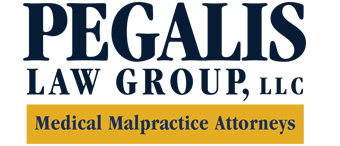-
Surprising Facts About Hospital-Acquired Infections
As the term suggests, hospital-acquired infections refer to any infection that a patient contracts while in the hospital. These infections do not include illnesses that a patient developed before going to the hospital. Sometimes, a hospital-acquired infection may be the result of medical malpractice. If you or a loved one develops pneumonia, surgical site infections, bloodstream infections, or other hospital-acquired infections, a medical malpractice lawyer can evaluate your case and explain your legal rights.
Hospital-Acquired Infections are Common

It’s a common misconception that this form of medical malpractice is rare. In fact, upwards of one million hospital-acquired infections occur in the U.S. each year. Hospital-acquired infections do not only affect patients who have undergone surgery; serious illnesses can develop in patients simply because of skin-to-skin contact. Furthermore, hospital-acquired infections can be deadly. In 2011, about 75,000 patients died of a hospital-acquired infection while they were still hospitalized, according to Everyday Health. This figure doesn’t include deaths that occurred after the patient was released from the hospital.
Bacterial Infections May Resist Antibiotic Treatment
You might think that if you acquire an infection, the best place to be is in a hospital because presumably, it can be diagnosed and treated rapidly. But in fact, many hospital-acquired infections are resistant to antibiotics. Each year, thousands of patients develop antibiotic-resistant diseases such as clostridium difficile (C-Diff) and Methicillin-resistant staphylococcus aureus (MRSA).
High-Touch Areas Can Harbor Microorganisms
Improper handwashing accounts for nearly half of all hospital-acquired infections. Yet, skin-to-skin contact isn’t the only culprit. Patients shouldn’t assume that high-touch areas such as bedrails, trays, and elevator buttons are sterilized regularly. When packing for a stay in the hospital, it’s a good idea to bring along sanitizing wipes.
The legal team at Pegalis & Erickson LLC has been dedicated to defending the legal rights of patients for more than 40 years. Our medical negligence lawyers have experience advocating on behalf of clients in cases involving hospital-acquired infections, birth trauma, wrongful death, and many others. If you would like one of our attorneys to review your case, you can contact our malpractice law firm in Long Island, New York at (516) 684-2900.
-
How Handwashing Prevents Patient Infections
 Hospital-acquired infections are all too common, and quite often, they are preventable with simple measures. If you or a loved one has been hospitalized, you can serve as a patient advocate to reduce the risk of medical malpractice. It’s your right to ask that any healthcare provider who enters the room wash his or her hands prior to carrying out duties. It’s also highly advisable for family members of patients to wash their hands well before entering the patients’ rooms.
Hospital-acquired infections are all too common, and quite often, they are preventable with simple measures. If you or a loved one has been hospitalized, you can serve as a patient advocate to reduce the risk of medical malpractice. It’s your right to ask that any healthcare provider who enters the room wash his or her hands prior to carrying out duties. It’s also highly advisable for family members of patients to wash their hands well before entering the patients’ rooms. Handwashing can prevent a wide range of bacterial, viral, and other infections. The importance of this simple preventive measure is highlighted during National Handwashing Awareness Week from December 6 th through the 12 th in 2015. Healthcare providers are in contact with dozens of patients each day and can easily transmit microorganisms from one patient to the next. This can occur even if the healthcare worker wears sterile gloves. As with other forms of medical negligence, you could choose to consult a medical malpractice attorney if you believe that you’ve acquired an infection because a healthcare provider failed to follow handwashing protocol.
Pegalis & Erickson, LLC is a malpractice law firm in Long Island, New York with years of experience defending the rights of patients who have suffered from medical malpractice. You can reach our office at (516) 684-2900 to arrange a case review.
-
Monitoring Your Health at Every Age [INFOGRAPHIC]
Your health is very important, and it can take some effort to stay in good shape. In addition to eating well and exercising regularly, it’s a good idea to educate yourself on when you should have certain medical tests performed. For example, women without a family history of breast cancer should begin mammograms at an earlier age than those without a family history of the disease. Any medical negligence, including failure to diagnose a condition, could result in you needing a medical malpractice attorney in Long Island, New York. Take a look at this infographic to learn more about the routine testing you should have by age. Please share with your friends and family.
![Monitoring Your Health at Every Age [INFOGRAPHIC] - medical malpractice lawyer long island](https://www.medicalnegligenceny.com/wp-content/uploads/MONITORING-YOUR-HEALTH-AT-EVERY-AGE-[INFOGRAPHIC][1].jpg)
-
The Proactive Patient’s Guide to Quality Healthcare [INFOGRAPHIC]
What is your most precious commodity? If you’re like most people, it is your health and the health of those you love. Many people enter the medical system—the system that cares for your valuable health—and simply assume that they are always in good hands. In reality, mistakes can and do happen in the medical environment, and the results can be devastating. That is why it is so important for you to become actively engaged in your own medical care and in the care of your loved ones. Speak up, ask questions, follow up on test results, and get second opinions. Refusing to be a passive patient could save your life. Pegalis & Erickson of Long Island devised this guide to being a proactive patient. Use it to take control of your own medical care. If a medical mistake happens to you, be sure to seek a medical malpractice attorney immediately to learn your rights. Please pass this vital information on to your family and friends.
![The Proactive Patient's Guide to Quality Healthcare [INFOGRAPHIC] medical malpractice lawyer long island](https://www.medicalnegligenceny.com/wp-content/uploads/The-Proactive-Patients-Guide-to-Quality-Healthcare[1].jpg)
Recent Posts
Popular Posts
categories
- Uncategorized
- Infographic
- Patient Safety
- Patient Health
- Stillbirth
- Birth Injuries
- Medical Malpractice
- Medical Negligence
- Event
- Erb's Palsy
- Injury
- ER
- Video
- Cancer Misdiagnosis
- Medication Errors
- Cerebral Palsy
- Medical Negligence Lawyer
- Anesthesia Injuries
- Brachial Plexus
- Prostate Cancer
- About Us
- Men's Health
- Skin Cancer
- Breast Cancer
- Misdiagnosis
